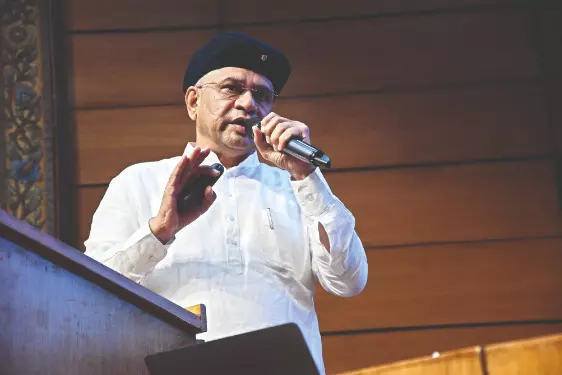PMDDKY gets Cabinet nod, Rs 24K crore a year

NEW DELHI: The Union Cabinet on Wednesday cleared a reformative scheme to increase India’s agricultural sector and accelerate the nation’s transition towards renewable energy.
The Prime Minister Dhan-Dhaanya Krishi Yojana (PMDDKY), the centerpiece of the agricultural reforms, is a six-year programme to be introduced in 2025–2026 with an allocation of Rs 24,000 crore each year. The scheme, intended to benefit 1.7 crore farmers in 100 districts across the country, targets areas that are grappling with low productivity, scattered credit availability, and lack of irrigation, Union Minister Ashwini Vaishnaw said.
PMDDKY has a district-focused strategy, asking each state to identify at least one district for comprehensive intervention, and draws inspiration from the Aspirational Districts Programme. With emphasis on five pillars—boosting crop yields, promoting sustainable measures such as diversification of crops, upgrading irrigation infrastructure, enhancing post-harvest storage facilities, and enhancing credit flow to farmers—the initiative also includes 36 ongoing schemes of 11 Union Ministries.
Through support from technical partners that include Central or state agricultural universities, district collectors will initiate the preparation of customised “District Agriculture and Allied Activities Plans.” A multilingual farmer app, performance-ranking districts on the basis of their performance, and a real-time system of monitoring are all proposed to encourage competitive governance and ensure accountability.
Conversely, Vaishnaw also asserted that the clearances, ranging from a flagship farm scheme to high-value investments in green energy infrastructure, mark a strategic move towards climate resilience and rural wealth. Accordingly, in line with India’s climate goals, the Cabinet also approved a Rs 20,000 crore capital investment in NTPC Green Energy Ltd (NGEL), a unit of the state-owned NTPC. The investment will drive NGEL’s renewable energy portfolio, currently standing at 6 GW operational and 26 GW in the development pipeline, towards its 2032 target of 60 GW. The acquisition complements NTPC’s shift from fossil fuels to renewables, imperative to meet the national goal of 500 GW non-fossil capacities by 2030.
Moreover, strengthening clean energy public-sector leadership, emerging from the Cabinet, there is a Rs 7,000 crore package cleared for Neyveli Lignite Corporation India Ltd (NLCIL). The Navratna PSU will transfer Rs 6,263 crore through asset transfers to its renewable arm, NLC India Renewables Ltd (NIRL), and invest Rs 700 crore in ongoing projects. With a current portfolio of 1,400 MW on seven projects, NLCIL is planning to grow to 10 GW by 2030, further establishing its position in India’s energy transformation. In addition, as a testament to India’s rapid green shift, the Cabinet stated that non-fossil power capacity has now crossed 50 per cent of the overall energy mix—a goal initially scheduled for 2030 under global climate agreements. This milestone, achieved five years before the deadline, makes India a world leader in decarbonisation, well above its COP26 commitments.
The twin clearances echo the twin priority on strengthening rural economies and driving climate action. By aligning resources for farm modernisation and leveraging public-sector behemoths such as NTPC and NLCIL, the initiatives are meant to overcome developmental imbalances while achieving energy self-reliance.



